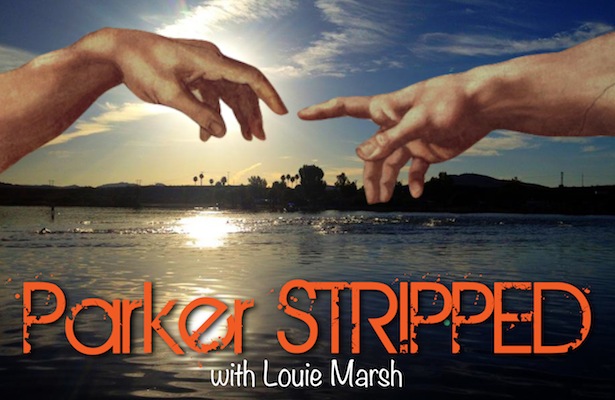Last month I talked a little bit about how important persistence is in our lives. Nothing worth doing happens without it, that’s for sure. And, come to think of it, nothing much worth doing gets done without at least some of it either! So persistence is a critical factor in all our lives.
But – you knew that big “but” was coming, didn’t you? – there are some perils to persistence and I’d like to talk a bit about that this month. Because persistence, like most other qualities in our lives, is like a double-edged sword. Powerful but dangerous to everyone including myself if I don’t watch what I’m doing.
One of the main perils in persistence is Blind Persistence. It’s that tendency many of us have, including me far too often I’m sad to report, to just keep on keeping on regardless of the results. Often this blindness is called persistence when it’s not. Because true persistence has to be guided by wisdom. I need to be checking to see if what I’m doing and how I’m doing it are actually accomplishing what I want to happen.
Blindly pushing forward and refusing to change isn’t being persistent, it’s being foolish. The results of this kind of behavior are usually not pretty. Businesses fail and lives can be ruined because we aren’t checking ourselves or refuse to accept the results of that check.
A classic example of blind persistence is World War One. The generals on both sides of that conflict were not expecting what they got. When the stalemate of trench warfare set in they kept on using the old methods and hoping that more of the same would win the day. It didn’t. What it did do, however, was to kill millions of people.
Take for example the Battle of the Somme. Fought between July 1 and November 1, 1916 near the Somme River in France, it was one of the bloodiest military battles in history. On the first day alone, the British suffered more than 57,000 casualties, and by the end of the campaign the Allies and Central Powers would lose more than 1.5 million men.
The United States lost about 58,000 men in over ten years of the war in Vietnam. The British nearly equaled that in one day! How did they react to that? They just kept on pushing men out of the trenches and into the German machine guns for four months.
Blind persistence indeed.
This reminds me of something I first heard from friends in A.A. “The definition of insanity is doing the same thing over and over again, but expecting different results.” This has been credited to Albert Einstein but no one really knows for sure who first said it.
But that doesn’t mean it’s not true. And it’s a great warning of the dangers of blind persistence. Saying to people “Don’t quit!” is okay, so long as you put that into some sort of larger context. The truth is we need to be evaluating what we’re doing and, if it’s not working, then stop it and figure out a better way to achieve our goal.
Just lowering your head and pushing forward is a great way to get both a massive headache and a nice hole in the wall. But it’s usually a lousy way of actually making progress towards achieving your goal. Raise you head, look around, get some facts and evaluate what happening and then decide if you need a new game plan or not.
Remember: stopping to come up with a new plan isn’t quitting. It’s pausing so you can regroup and then get back at it with a better chance of actually succeeding. Imagine that.
So what happens when you decide that you really do need to quit and do something else? Well, do it and be persistent in that endeavor. Just remember that being persistent is a tool, and you are the one who decides when and how to use it.
You use it, it shouldn’t be using you. There’s also a big difference between doing something because it’s become a habit and being thoughtfully persistent. The latter is always a good idea while the former might be, but then again it might not.
So may you always persist in your persistence, but only in a wise, thoughtful and mature way.
# # #
Louie Marsh is pastor of Christ’s Church on the River on the Parker Strip. Visit his website HERE.
 Parker Live News from the Parker Strip since 2009.
Parker Live News from the Parker Strip since 2009.





